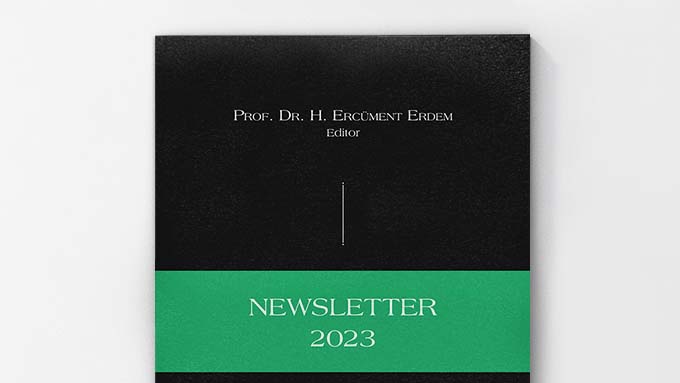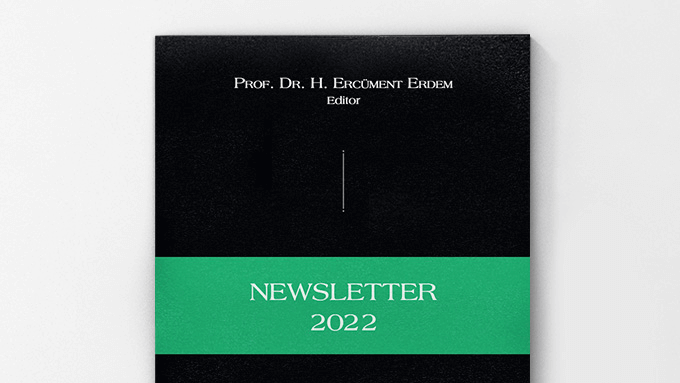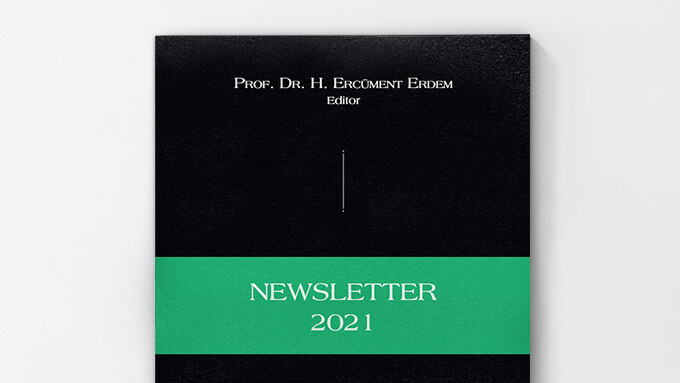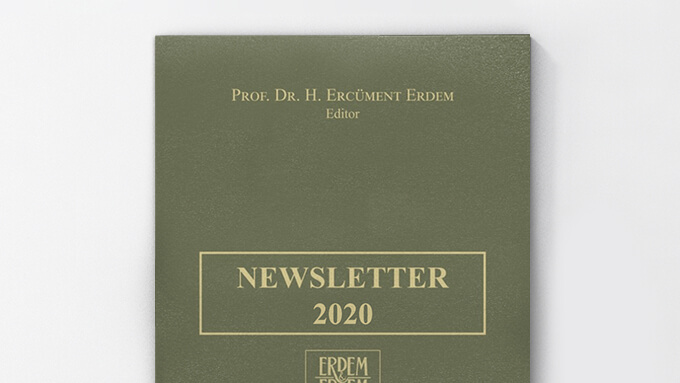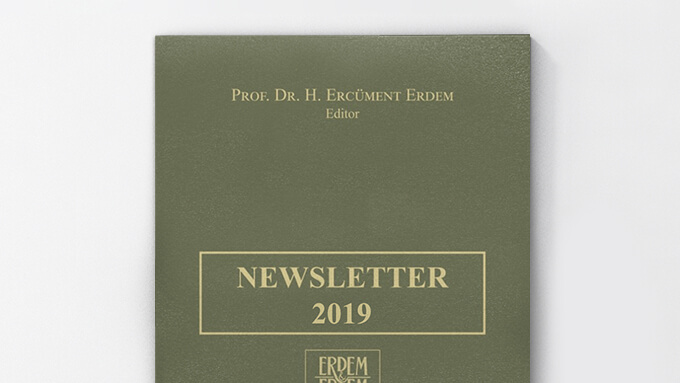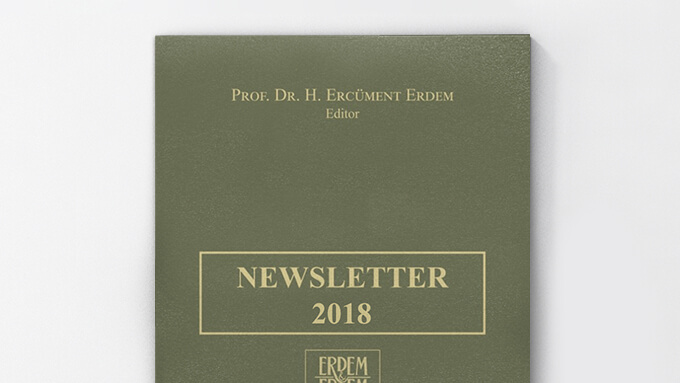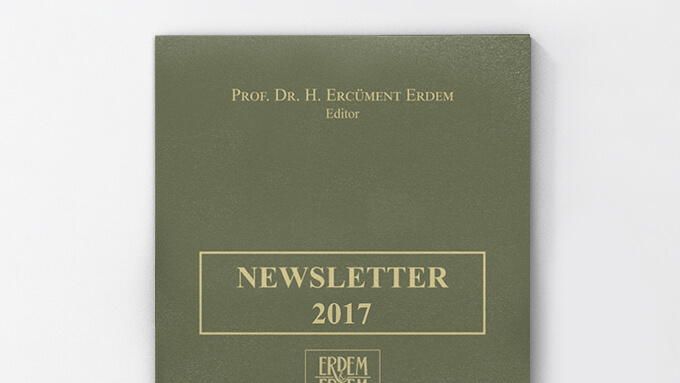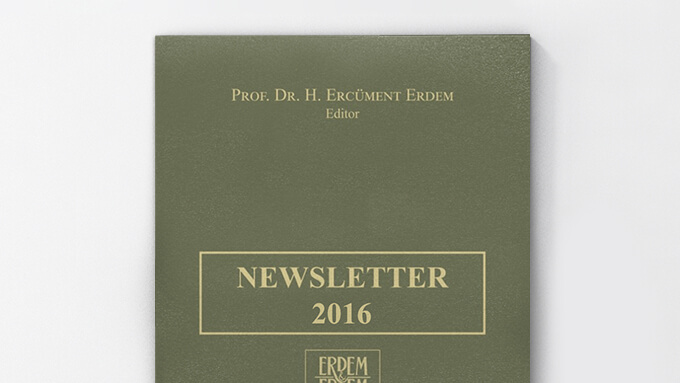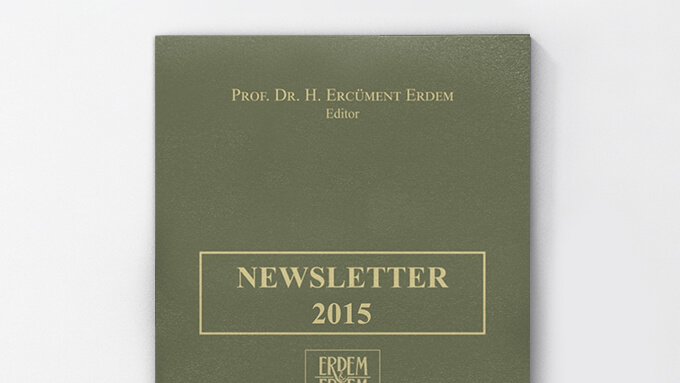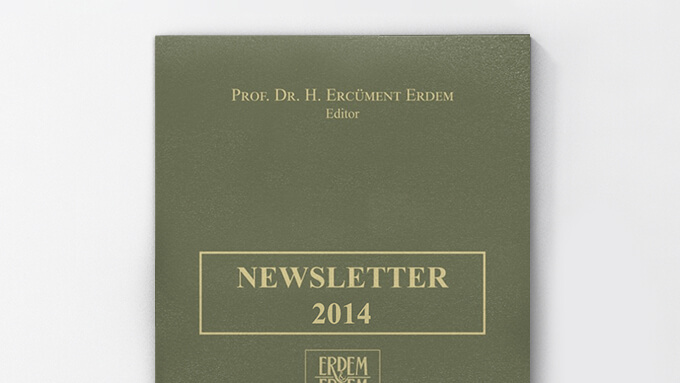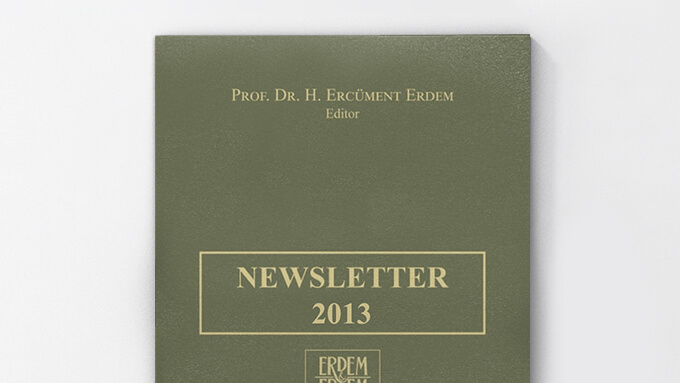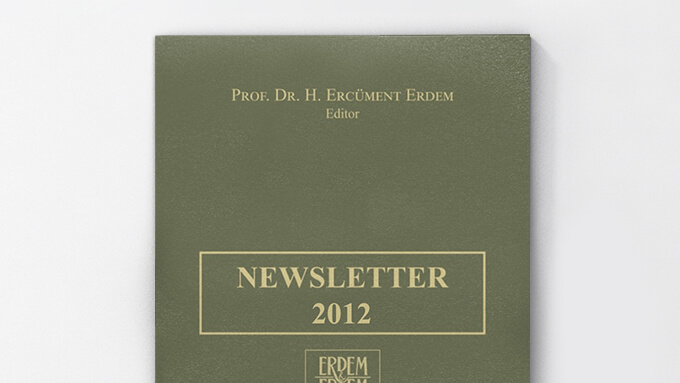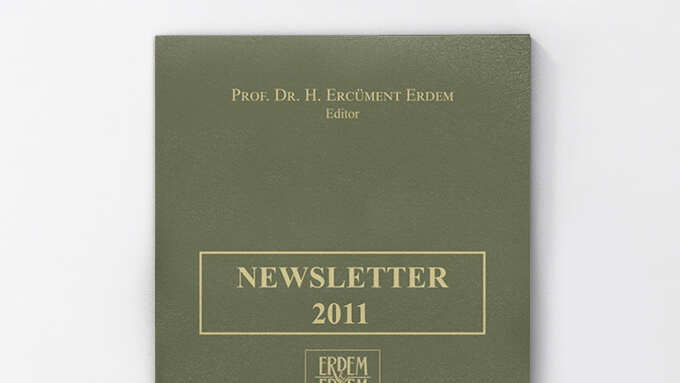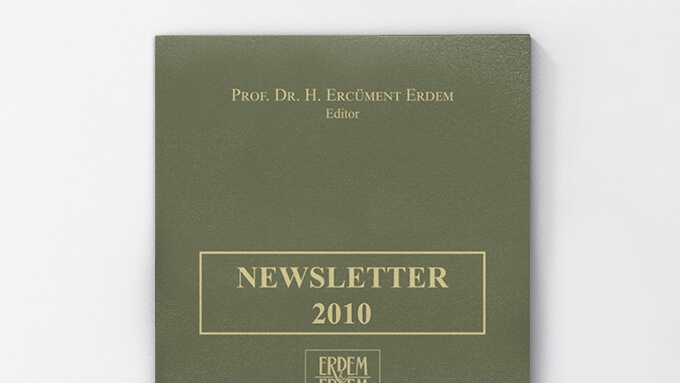Automotive Sectoral Report 2022
Authors: Alper Uzun, Rüştü Mert Kaşka, Abdullah Bozdaş, Aslı Su Çoruk
Overview
The exceptional scenario that the world has been experiencing for the last three years as a result of the coronavirus epidemic has generated production and supply challenges in the automobile sector. In particular, due to the so-called chip crisis, production capacities decreased and demands could not be met as automotive manufacturers had difficulty in finding chips because of the decrease in semiconductor chip production. Even large manufacturers had to deliver their orders months later.
During this period in our country, demand has increased since automobile prices kept rising due to the economic situation, the increase in exchange rates, and the increase in prices of both stock and imported products and automobiles started once again to be regarded as an investment instrument. Sudden and significant increases in exchange rates led to significant price fluctuations in the second quarter of the year. In addition, the difficulties of consumers in accessing loans, the maturity and vehicle price limits of loans against vehicle prices, the possibility of special consumption tax (ÖTV) reduction, and the expectation of a tax base regulation, which were being rumored throughout the year, also had a negative impact on the course of the market. The automotive sector, which also creates a serious tax source, ended 2022 with supply and demand problems.
Despite the unfavourable course of economic data in 2022, it was noted that the total market of the automotive sector increased at a certain rate as compared to the previous year's data.[1] Similarly, an increase in car sales compared to last year's data has been observed.[2] It is possible to say that this increase occurred as a result of December 2022 data. Indeed, according to data from the Automotive Distributors and Mobility Association; in December 2022, car sales increased by 99.2% compared to the same month of the previous year and reached 86,774 units, while the light commercial vehicle market increased by 55.2% to 28,446 units.[3] However, it is stated that the increases are below the expectations compared to the previous year in which the global pandemic was experienced intensely. The main reasons behind this, are global and local factors such as the chip crisis, cable crisis, ongoing problems in the global supply chain caused by the pandemic, devaluation of Turkish Lira against foreign currencies and the inflationist environment in our country. Due to these difficulties in the sale of new vehicles, there has been an increase in the orientation towards the second-hand car market and remarkable price increases in the second-hand automobile market were observed.
In addition to these developments in the sector, there have also been important progress regarding electric automobiles in our country. Turkish car brand TOGG started mass production. In order to ensure the widespread use of electric vehicles, the legal infrastructure for electric vehicle charging stations and charging networks was prepared. As a matter of fact, it is possible to say that a significant part of the legal developments in the sector are related to the preparation of the legal infrastructure for electric vehicles and the support and incentivisation of investments in this scope by the government.
In accordance with the explanations above, the majority of new initiatives in the automotive sector also focus on electric vehicles. As of the date of this report, 77 companies have obtained charging network operation licences. TOGG, which continues to work producing Turkiye's first domestic electric car and announced the start of mass production in October was among these companies.
As a result of the re-determination of the Special Consumption Tax bases applied in the sale of vehicles on 24 November 2022, the tax base calculated over the tax-free sales price of vehicles was amended at certain rates and as a result, a certain amount of discount was reflected in the sales prices. However, even though the regulation had a positive impact on vehicle sales in December with a discount of approximately 5% to 10% on vehicle sales prices, it did not have the expected effect on the market due to supply problems and rising prices.
Important Legislation Amendments in 2022
Electric Market Law No. 6446
Through the Law No. 7346 on the Amendment of Certain Laws, published in the Official Gazette dated 25.12.2021 and numbered 31700, regulations on electric vehicles and charging stations were introduced to the Electricity Market Law No. 6446.
Through this regulation, the concepts of electric vehicle and charging station are legally defined. It is also stipulated that charging service is an electricity market activity and the general principles regarding the provision of charging services for electric vehicles are regulated.
Charging Service Regulation
In parallel with the amendments made to the Electricity Market Law, the Regulation on Charging Services entered into force through publication in the Official Gazette dated 02.04.2022 and numbered 31797. Through this regulation, the procedures and principles regarding the establishment of charging units and stations where electric energy is provided to electric vehicles, the charging network, the operation of charging stations connected to the charging network and the provision of charging services were determined.
Through the Regulation, the obligations of charging network and charging station operators are regulated.
Regulation on Technological Product Investment Support Programme
According to the amendment to the Regulation, it is foreseen that investment projects for the establishment of high-speed charging stations for electric vehicles will be eligible for the technological product investment support program.
Decision on the Inclusion of Electric Vehicle Supply Equipment within the Scope of the Measurements and Adjustment Law No. 3516 (Decision No: 5446)
With the Decision on the Inclusion of Electric Vehicle Supply Equipment within the Scope of the Measures and Adjustment Law No. 3516 published in the Official Gazette dated 20.04.2022 and numbered 31815, electric vehicle supply equipment, which is used in the charging service and also measures the amount of electrical energy transferred to the vehicle, was included in the scope of the Measures and Adjustment Law No 3516.
Regulation on Production, Repair and Montage of Vehicles
As per the Regulation Amending the Regulation on the Production, Repair and Montage of Vehicles published in the Official Gazette dated 25.12.2021 and numbered 31700, it is now possible to grant exemption from the regulations within the scope of mass and dimension and emission legislation that must be compulsorily met in national small series type approval procedures, provided that the manufacturer presents technical and administrative justifications and obtains the consent of the Minister. However, manufacturers have the possibility to apply for exemption for only one and maximum 3 vehicle types within the same calendar year.
Regulation on the Trade of Second Hand Motor Land Vehicles
With the amendment published in the Official Gazette dated 16.08.2022 and numbered 31925 on the Regulation on the Trade of Second-Hand Motor Land Vehicles, it was regulated that those engaging in the trade of second-hand land vehicles will not be able to sell the vehicles until 01.07.2023, unless six months and six thousand kilometers have passed since the first registration date of the vehicles. In addition, the Ministry is authorized to extend this period up to six months.
Regulation (EU/2020/683) on Administrative Requirements for the Type Approval and Market Surveillance and Inspection of Motor Vehicles and Trailers and Their Components, Systems and Separate Technical Units
The Regulation on Type Approval and Market Surveillance and Inspection of Motor Vehicles and Trailers and Their Components, Systems and Separate Technical Units is published in the Official Gazette dated 26.10.2022 and numbered 31995. The Regulation regulates some issues regarding the standardization of documents used for type approval of vehicles.
Regulation (EU/2021/646) on the Type Approval of Motor Vehicles for Emergency Lane Keeping Systems
The Regulation on the Type Approval of Motor Vehicles for Emergency Lane Keeping Systems is published in the Official Gazette dated 26.10.2022 and numbered 31995. The objective of the Regulation is to determine the provisions on equipping motor vehicles with emergency lane-keeping systems and the specific test procedures and technical requirements for the type approval of these systems, as well as the procedures and principles for their implementation. The Regulation and its annexes regulate the procedure for type approval application and issues related to safety audit.
Regulation on Type Approval of Motor Vehicles for Alcohol Lock Installation Preparation (AB/2021/1243)
Regulation on Type Approval of Motor Vehicles for Alcohol Lock Installation Preparation is published in the Official Gazette dated 26.10.2022 and numbered 31995. The Regulation and its annexes regulate the procedures and principles for obtaining type approval for alcohol lock installation preparation in motor vehicles.
Regulation on Type Approval of Motor Vehicles for Driver Distraction and Attention Warning System (AB/2021/1341)
This regulation regulates the issues regarding the installation of driver distraction and attention warning systems for motor vehicles in categories M and N and the issuance of type approvals for these systems.
Details on the Notable Changes
Legislative Infrastructure for Electric Vehicles
It is possible to say that e-mobility, which is the most current issue in the automotive sector, has also left its mark on the legal developments in the sector in 2022 in our country, where a serious incentive is envisaged for the development of a new brand and fully electric cars under this brand with TOGG. As can be seen in the table above, the majority of the important legislative changes touching upon the automotive sector are efforts to prepare the legal infrastructure for electric vehicles.
In this context, with the amendments made to the Electricity Market Law No. 6446 on 25.12.2021, "electric vehicle" was defined in our legislation as "a motorized road vehicle that uses an electric motor, solely or supportively, for its movement and can be charged externally with electrical energy". Furthermore, the amendment also introduced the terms "charging network" and "charging station" into our legislation at the statutory level. According to the definition stipulated in the Electricity Market Law, a charging station is defined as a facility where electric energy is transferred to electric vehicles, while a charging network is defined as a system used to provide charging services to electric vehicles at multiple charging stations.
With the supplementary article 5 added to the Electricity Market Law, charging service has become an electricity market activity and therefore is regulated like other electricity market activities. In order to expand the use of electric vehicles in our country, it is undoubtedly necessary that the stations where these vehicles can be charged become widespread throughout the country. In order for charging stations to become widespread in this way, the relevant legislative infrastructure must be established and the principles regarding the provision of charging services must be determined. With the amendments made to the Electricity Market Law, the basic obligations of charging service providers are determined.
The Charging Service Regulation defines the procedure to be followed to obtain a charging network license, the rights and obligations of license holders and consumers. With the amendment made to the Regulation on the Technological Product Investment Support Program, investment projects for the establishment of high-speed charging stations for electric vehicles were included in the technological product investment support program. It was envisaged that the projects entitled to receive support would receive machinery and equipment support for charging unit and distribution transformer investments. In this framework, 46 projects in total were entitled to receive support.[4]
Exemptions Regarding Small Series Type Approvals
With the amendment made to the Regulation On Production, Repair and Montage of Vehicles, regulations were made regarding the exemptions that can be granted in the conformity approval procedures of small series vehicles. Pursuant to the amendment, the possibility of exemption from the regulations under the mass and size and emission legislation has been regulated, provided that the manufacturer presents technical and administrative justifications and obtains the consent of the Ministry.
The new regulation stipulates that manufacturers can apply for exemption for only one and maximum 3 vehicle types within the same calendar year. However, manufacturers for whom national small series type approvals have been issued will not be able to apply for a new national small series type approval within 12 months from the date of issuance of the relevant type approval. For vehicles to be produced within the scope of national small series type approval, a production permit for a maximum period of 12 months as of the date of the type approval certificate and a registration permit for a maximum period of 12 months for complete vehicles and a maximum period of 18 months for incomplete vehicles will be issued as of the end date of the production permit.
Regulation on the Second-Hand Vehicle Market
Due to supply problems and various reasons, the supply and sales of zero-kilometer vehicles decreased, leading to an increase in the tendency towards the second-hand market. This affected the second-hand market in the form of increased sales prices and some activities that may indicate unfair competition. Whilst the supply problems continued in the new car market, the fact that unused cars were being offered in the second-hand market for prices exceeding the listing prices had made this problem to stand out even more. In order to mitigate the effects of this problem in the market, the Ministry of Trade issued a regulation on 16.08.2022 stipulating that until 01.07.2023, second-hand sales of vehicles are prohibited unless six months have passed from the date of registration and the vehicles have reached 6 thousand kilometres.
In connection with the sectoral developments in the automotive market, the Competition Board issued several decisions. An overview of Competition Board decisions affecting the automotive industry is shown below.
Recent Competition Board Decisions
Decisions on Mergers and Acquisitions
Kavak / Araba Sepeti Decision[5]
The Decision concerns the evaluation of the acquisition of sole control of Araba Sepeti Otomotiv Danışmanlık Hizmetleri San. ve Tic. A.Ş. ("Araba Sepeti") by Kavak Holdings Limited ("Kavak") through Kavak Intermediate Holdings LLC.
The Board stated that Kavak and Araba Sepeti operate in the market for the purchase and sale of second-hand vehicles and, therefore, the activities of the parties overlap in the field of "purchase and sale of second-hand vehicles" on a global scale. On the other hand, the Board stated that since Kavak does not have any activities in Turkiye, there is no horizontal or vertical overlap in the Turkish market, and therefore there is no affected market in Turkiye.
Accordingly, the Board authorised the transaction since there is no significant lessening of effective competition as a result of the transaction.
RMA / Altınay Decision [6]
The Decision concerns the evaluation of the acquisition of the sole control of Altınay Modifikasyon Merkezi Tic. A.Ş. ("Altınay") by RMA Holding Limited ("RMA").
The Board stated that RMA and Altınay provide superstructure services for light commercial vehicles in Turkiye. Therefore, there is a potential horizontal overlap between the activities of the parties in the market for superstructure services for light commercial vehicles. However, the Board, considering the fact that the market shares of the parties are quite low and the market in question has a multi-player and competitive structure, concluded that the transaction notified transaction would not result in a significant lessening of effective competition in any market and decided to authorise it.
Volkswagen AG / Europcar Decision [7]
The Decision concerns the evaluation of the acquisition of the joint control of Europcar Mobility Group (“Europcar”) by Volkswagen AG (“Volkswagen”), Trinity Investments DAC and Pon Holding B.V.
The Board stated that there is no horizontal overlap between the activities of the transaction parties in Turkiye, but potentially only one vertical relationship. In this context, the Board stated that only one potential vertical relationship within the scope of the file could occur between Volkswagen's car and commercial vehicle production and Europcar's car rental activities.
On the other hand, the Board considered that the vertical interaction in question would not raise competitive concerns since the market shares of the parties are negligible, the markets in question exhibit a multi-player structure, and rival undertakings have access to alternative suppliers and customers. As a result, the Board authorised the transaction since there is no significant lessening of effective competition as a result of the transaction.
ADT / Ford Decision [8]
The decision concerns the evaluation of the acquisition of joint control of SNTNL by ADT LLC ("ADT") and Ford Next LLC ("Ford Next") to form a fully functional joint venture named SNTNL LLC ("SNTNL").
Ford Next carries out Ford Group's activities related to driverless vehicles. ADT operates as a security, automation and smart home solutions provider and offers 24/7 professional monitoring services as well as do-it-yourself, mobile and digital-based services and solutions. Following the completion of the transaction, SNTNL will operate in the field of integrated intelligent vehicle safety systems and the system in question is planned to be developed from scratch, manufactured and sold to be introduced to the market in the last quarter of 2022.
As a result, the Board authorised the transaction since there is no significant lessening of effective competition as a result of the transaction.
Daimler Truck / Volvo Decision [9]
The decision concerns the evaluation of the establishment of a new joint venture by Daimler Truck AG ("Daimler Truck"), Traton SE and Aktiebolaget Volvo ("Volvo") to establish and develop a high-performance charging network for battery-electric heavy-duty trucks and buses.
The Board emphasised that the development and installation of high performance charging network stations for battery electric heavy duty trucks and buses, which have become widespread in recent years for passenger cars, is a very new initiative market and that this market is still in the establishment phase, especially in Europe.
The Board stated that although the transaction parties are important players in the production and sale of passenger cars, light commercial vehicles, trucks and buses, there is no horizontal or vertical overlap between the activities of the new joint venture and the transaction parties in Turkiye. As a matter of fact, the joint venture is not expected to operate in Turkey in the near future and the parties to the transaction are not currently engaged in the production and sale of battery-electric heavy-duty trucks and buses in Turkiye.
Moreover, considering that a special competition law compliance management system will be implemented to prevent the sharing of competitively sensitive information between the main undertakings through the joint venture, the Board concluded that the transaction subject to the notification would not pose a coordination risk and authorised the transaction.
Individual Exemption Decisions
OSD Decision [10]
In the Decision, it is requested that the Automotive Industry Association ("OSD"), which is an association of undertakings of which rival undertakings are members, be granted a negative declaration for the sharing of certain information regarding the automotive sector, and if this is not possible, an individual exemption to be granted.
It has been assessed that the production and export quantities in the data breakdowns planned to be shared do not include strategic information such as prices, stocks, targets of the undertakings and are not suitable for making conclusions on these issues, and therefore, the data planned to be published on a monthly basis will not be able to affect the strategic decisions of competitors.
The Board emphasised that the sectoral data would be shared in an aggregated manner and would not contain any undertaking-specific information, and stated that the information sharing would not pose any risk of coordination between competitors. Information planned to be shared within the scope of the application is not of a strategic nature, on the other hand, the market shares of OSD members correspond to much lower figures in practice, and that the information shared does not lead to the coverage of a significant part of the relevant market.
As a result, it was stated that the information planned to be collected and shared by OSD would not have an impact on the sales and pricing decisions of the undertakings. In addition, it was decided that the collection and sharing of such information would not restrict competition since it was understood that the collection and sharing of such information would not lead to coordination and would not result in market closure. Therefore, it has been decided to issue a negative declaration certificate for the transaction subject to the notification.
Doğuş / ADP Decision [11]
The decision is related to the evaluation of the negative declaration application regarding the contract between Doğuş Otomotiv Servis ve Ticaret A.Ş. ("Doğuş") and ADP Oto Sanayi ve Ticaret Ltd. Şti. ("ADP") for consultancy services on spare parts market research and maintenance and repair market research.
The subject of the contract subject to the notification is the reporting of brand and sub-industry equivalent spare parts, service and oil prices to Doğuş by ADP. It is stated that the purpose of the contract is to provide the most competitive and favourable price to the customers by obtaining the service of a third party company for researching the list prices of Doğuş's competitors in the spare parts and maintenance and repair market.
The reasons for the decision to outsource the research to a third-party company were stated as (i) to eliminate the risks of information exchange allegations that may be brought forward in terms of competition law, (ii) the research requires technical knowledge and expertise beyond that of the employees of Doğuş, and hiring employees with this technical expertise brings additional costs, and (iii) to save time and costs.
The Board concluded that the contract between Doğuş and ADP for the provision of consultancy services on spare parts market research and maintenance and repair market research would not lead to competitive concerns in the relevant markets and would not have any anticompetitive purpose or effect within the scope of Article 4 of Law No. 4054, considering the fact that the market research in question includes current publicly available list prices and that this information was obtained through a market research company in order to leave no room for any suspicion of information exchange. Therefore, it has been decided to issue a negative declaration certificate for the contract.
Investigation Decisions
New and Second Hand Vehicle Distributors Decision [12]
The decision assessed whether distributors and car rental companies operating in the first-hand (new) and second-hand car sales markets violated Article 4 of Law No. 4054. In its assessment of the market, the Board pointed out that the automotive market in Turkiye has a very transparent structure and that a lot of information, including future sales forecasts, is shared within the Automobile Distributors Association and OSD. Moreover, the Board stated that undertakings operating in the automotive market are able to monitor information on competitors through various methods such as mystery shopping or publicly available sources. Consequently, the Board concluded that the exchange of information sensitive to competition within the scope of Article 4 of Law No. 4054 is not in question in the present case. Accordingly, it was decided that there was no need to impose administrative fines on the undertakings party to the investigation.
Special Consumption Tax (ÖTV) Decision [13]
The decision concerns the assessment of the determination of whether Article 4 of the Law No. 4054 has been violated upon the cancellation of the Competition Board decision dated 24.06.2009 and numbered 09-30/637-150 regarding the allegation that the new passenger car and light commercial vehicle manufacturer and distributor undertakings acted together after the SCT reduction and increased prices and restricted the supply of goods, upon the cancellation of the decision of the 13th Chamber of the Council of State dated 04.12.2019 and numbered 2018/3127 E. and 2019/4094 K.
The Board concluded that the conditions of the principle of ne bis in idem (the rule that two separate penalties cannot be imposed for the same act and that a final judgement cannot be re-sentenced) were met for 11 undertakings party to the investigation and that the evidence obtained did not reveal any violation of competition law for the remaining undertakings and decided that there was no ground for imposing administrative penalties on the parties to the investigation.
Market Data
There are approximately thirty automobile and light commercial vehicle distributors actively operating in Turkiye. The information of the main distributors operating in our country and the brands they distribute is given below[14]:
Distrubitors and Automobile Brands
- Anadolu Isuzu Otomotiv Sanayi ve Ticaret A.Ş (Isuzu): Isuzu
- Baytur Motorlu Vasıtalar Tic. A.Ş.: Subaru
- Borusan Otomotiv İthalat ve Dağıtım A.Ş.: BMW, MINI, Land Rover, Jaguar
- Çelik Motor Ticaret A.Ş.: KIA
- D ve D Motorlu Araçlar A.Ş.: Aston Martin
- Doğan Trend Otomotiv Tic. Hiz. ve Teknoloji A.Ş.: MG
- Doğuş Otomotiv Servis ve Ticaret A.Ş.: Volkswagen, Audi, Seat, Cupra, Porsche, Lamborghini, Bentley
- Fer Mas Oto Ticaret A.Ş.: Ferrari, Maserati
- Ford Otomotiv Sanayi A.Ş.: Ford
- Honda Türkiye A.Ş.: Honda
- Hyundai Assan Otomotiv Sanayi ve Ticaret A.Ş.: Hyundai
- MAIS Motorlu Araçlar İmal ve Satış A.Ş.: Renault, Dacia
- Mazda Motor Logistics Europe NV: Mazda
- Mercedes Benz Otomotiv Ticaret ve Hizmetleri A.Ş.: Mercedes-Benz, Smart
- Nissan Otomotiv A.Ş.: Nissan
- RKS Otomotiv San. ve Tic. A.Ş.: RKS
- Royal Motors Sanayi ve Ticaret Ltd. Şti.: Rolls Royce, Lotus
- Sever Oto Otomotiv San. Ve Tic. Ltd. Şti.: Lada
- Stellantis Otomotiv Pazarlama A.Ş.: Peugeot, Citroen, Opel, DS
- Suzuki Motorlu Araçlar Pazarlama A.Ş.: Suzuki
- Şahsuvaroğlu Dış Ticaret Ltd. Şti: SsangYong, Seres, DFSK
- Temsa Motorlu Araçlar Pazarlama ve Dağıtım A.Ş.: Mitsubishi
- Tofaş Türk Otomobil Fabrikası A.Ş.: Fiat, Alfa Romeo, Lancia, Jeep
- Toyota Türkiye Pazarlama ve Satış A.Ş.: Toyota, Lexus
- Ulu Motor Sanayi Ve Ticaret A.Ş.: Skywell
- Volvo Car Turkey Otomobil Ltd. Şti.: Volvo
- Wowwo E-Ticaret Telekom. ve Teknoloji A.Ş.: Leapmotor
- Yüce Auto Motorlu Araçlar Tic. A.Ş.: Skoda
Automobile and Light Commercial Vehicle Market Review
Although it was determined that the automotive market increased to a certain extent in 2022, it was noted that it has not yet returned to its pre-pandemic level.[15]
According to data published by the Automotive Distributors and Mobility Association, the automobile and light commercial vehicle market in Turkiye increased by 6.2% compared to the previous year.[16] Total sales were 783,283 units, of which 592,660 are automobiles.
When the sales figures of the automobile market are analysed, Fiat was the most sold automobile brand in our country in 2022. Renault ranks second and Volkswagen third.
Ford, Fiat and Toyota are the brands with the highest sales in the light commercial vehicle market, which is highly preferable due to lower SCT in Turkiye.
When the total market including automobiles and light commercial vehicles is analysed, the best-selling vehicle brand is Fiat, which is also the leader of the automobile market. Fiat is followed by Renault, Ford, Volkswagen and Toyota.
When the automobile market is analysed by segments, it is seen that the A, B and C (mini, supermini, compact) segments, which have the lowest tax rates, make up 88% of total sales.
When the automobile market is analysed according to body types, it is observed that SUV category vehicles, which have been on the rise in recent years, broke new ground this year and became the most preferred car body type with 41.4%, leaving sedan body type vehicles behind.
Another data that draws attention in the automobile market is the most sold car model. In 2022, the Egea model of the Fiat brand, which was put on sale at the end of 2015, reached a sales figure of 97,078 units and again became the best-selling car model. Ford Courier is the best-selling model among light commercial vehicles.
When the sales of electric and hybrid cars are analysed, it is evaluated that especially the sales of electric cars are not at the expected level, but they tend to increase. Despite an increase of more than 100 per cent compared to the previous year, only 7733 electric cars were sold in 2022. This figure covers only 1.3 per cent of all car sales. In view of the fact that both legislation and market developments mostly cover electric cars, it is considered that electric cars have not reached the desired level among total sales. However, it is understoond that the problem of lack of widespread charging network stations, which is one of the most visible disadvantages of electric car use in our country, will start to decrease especially with the increase in the number of companies obtaining charging network operation licences.
In addition, the fact that the sales of TOGG will start in the near future is expected to help increase the number and awareness of electric cars both in the sector and among consumers.
Unlike the general course of the market, the best-selling model among electric cars in Turkiye was the BMW iX, an SUV model in the E segment. BMW iX was followed by Renault ZOE in mini class, Mercedes EQE in E segment sedan and Mercedes EQS in F segment sedan.
In line with the sales figures of recent years, hybrid cars also increased compared to the previous year and accounted for 10.9 per cent of total car sales. The sales share of diesel engine vehicles remained at a low level as in recent years and was 17.4%, while gasoline vehicles continued to be the most preferred fuel type in Turkey with a share of 68.55%. The best-selling model in this category was the Egea Cross model of Fiat's Egea model, which offers an appearance and equipment close to SUV vehicles, followed by the Dacia Duster, a C-segment SUV that sells in similar numbers.
When sales by engine displacement are analysed, considering that these preferences are also shaped within the framework of the regulations regarding the taxes levied on automobiles and vehicle prices in our country, it is seen that the most preferred type is vehicles with an engine displacement smaller than 1600 cc with 87%.
In 2023, it is predicted that the increase in electric car sales will continue. At this point, the launch of TOGG's SUV model in the C segment is eagerly awaited by the Turkish consumer.
In 2023, many brands are trying to introduce new models and especially electric models to the Turkish market. It is also known that new brands will enter our country. One of these is the Chinese Chery brand, which was previously represented by Mermerler Otomotiv. We have been informed that the Chery brand will enter the Turkish market this time under its own distributorship.
It is also expected that in the new year, especially in the second half of the year, the chip production problem will decrease, thus solving the supply problem and the market is expected to grow.
- Otomotiv Distribütörleri ve Mobilite Derneği, 2022 Aralık Otomobil ve Hafif Ticari Araç Pazar Değerlendirme https://www.odmd.org.tr/ web_2837_1/neuralnetwork.aspx?type=35 (Access Date: 05.01.2023)
- See, dp. 1, 2022 Aralık Otomobil ve Hafif Ticari Araç Pazar Değerlendirme
- See, , dp. 1, 2022 Aralık Otomobil ve Hafif Ticari Araç Pazar Değerlendirme
- https://sarjdestek.sanayi.gov.tr/assets/content/file/cagri-sonuclari.pdf
- Decision of the Competition Board dated 16.09.2021 and numbered 21-43/627-309.
- Decision of the Competition Board dated 23.12.2021 and numbered 21-63/893-436.
- Decision of the Competition Board dated 25.11.2021 and numbered 21-57/803-398.
- Decision of the Competition Board dated 10.03.2022 and numbered 22-12/196-81.
- Decision of the Competition Board dated 28.04.2022 and numbered 22-20/320-142.
- Decision of the Competition Board dated 21.10.2021 and numbered 21-51/714-355.
- Decision of the Competition Board dated 21.07.2022 and numbered 22-33/525-211.
- Decision of the Competition Board dated 03.03.2022 and numbered 22-11/170-69.
- Decision of the Competition Board dated 26.08.2021 and numbered 21-40/595-290.
- https://www.odd.org.tr/web_2837_1/sortial.aspx?sp_ table=Tk_2837_Distributors&sp_primary=distributor_id&sp_ fields=,name,telephone,fax,web,address&sp_language=0&sp_table_extra
- KPMG, Otomotiv Sektöründe Gelişen Teknolojiler, (assets.kpmg) (Access Date: 31.10.2022
- See, dp. 1, 2022 Aralık Otomobil ve Hafif Ticari Araç Pazar Değerlendirme.
All rights of this article are reserved. This article may not be used, reproduced, copied, published, distributed, or otherwise disseminated without quotation or Erdem & Erdem Law Firm's written consent. Any content created without citing the resource or Erdem & Erdem Law Firm’s written consent is regularly tracked, and legal action will be taken in case of violation.

